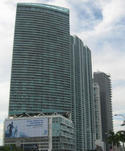Few icons of the American way of life have suffered more in recent years than homeownership. Since the bursting of the housing bubble, there has been a steady drumbeat from the factories of futurist punditry that the notion of owning a home will, and, more importantly, should become out of reach for most Americans. read more »
Housing
Fortress Australia: Groundhog Day
A decade ago, politics in Australia lurched to embrace all things rural, happily demonizing urban interests. This happened in response to a renegade Politician – Pauline Hanson – who for a time captured public sympathy with populist anti-immigration sentiments, threatening to unseat entire governments in the process. read more »
Time to Hate Those HOAs (again).
The foreclosure crisis has been devastating for millions of Americans, but it has also impacted many still working as before and holding on to their homes. Even a couple of empty dwellings on a street can very quickly deteriorate and become a negative presence in the neighborhood, at the least driving down prices further, sometimes attracting crime. Untended pools can allow pests to breed. Many animals have been abandoned and shelters report overflowing traffic. read more »
The Livable Communities Act: A Report Card
With much fanfare, the Banking Committee of the United States Senate approved the Livable Communities Act (S. 1619, introduced by Democratic Senator Dodd of Connecticut). A purpose of the act is expressed as:
...to make the combined costs of housing and transportation more affordable to families.
The Livable Communities Act would provide financial incentives for metropolitan areas to adopt "livability" policies, which are otherwise known as "smart growth," "growth management" or "compact city" polices. read more »
Summer in the Hamptons: UnReal Estate
If you are looking for a place where you can, in your day dreams, ride out the recession, might I suggest one of the Hamptons? These are the celebrity-drenched villages that stretch for thirty miles across the sand dunes and potato fields of Long Island’s South Fork, which ends at Montauk Point and its lighthouse.
Why the Hamptons for a depression-era exile? For starters, if you’re a seller, the Hamptons remain Paradise. Fishermen’s cottages start at $1 million, oceanfront property goes for about $7 million an acre, and the street value of guacamole rivals that of cocaine. read more »
The Housing Bubble: The Economists Should Have Known
Paul Krugman got it right. But it should not have taken a Nobel Laureate to note that the emperor's nakedness with respect to the connection between the housing bubble and more restrictive land use regulation. read more »
The Disappearance of the Next Middle Class
Every week we read that yet another major housing project has been turned down by the Courts here in New Zealand because of the need to protect "rural character" or "natural landscapes". This may well have profound short and long-term consequences for the future of our middle class, as it does for the same class in countries around the advanced world.
Every week a multitude of smaller developers abandon their projects because Councils’ compliance costs and development contributions make the projects unviable – even if the land were free. And it’s not. read more »
China's Sliver of a Housing Bubble
Few finance issues have received such a wide range of opinions among financial experts than the "housing bubble" in China. This is an issue of international importance because what happens in what is now the world’s 2nd largest economy affects the rest of the world. read more »
- Login to post comments
Vancouver: Planner’s Dream, Middle Class Nightmare
Vancouver is consistently rated among the most desirable places to live in the Economist’s annual ranking of cities. In fact, this year it topped the list. Of course, it also topped another list. Vancouver was ranked as the city with the most unaffordable housing in the English speaking world by Demographia’s annual survey. According to the survey criteria, housing prices in an affordable market should have an “median multiple” of no higher than 3.0 (meaning that median housing price should cost no more than 3 times the median annual gross household income). Vancouver came in at a staggering 9.3. The second most expensive major Canadian city, Toronto, has an index of only 5.2. Even legendarily unaffordable London and New York were significantly lower, coming in at 7.1 and 7.0 respectively. While there are many factors that make Vancouver a naturally expensive market, there are a number of land use regulations that contribute to the high housing costs. read more »
Urban Legends: Why Suburbs, Not Dense Cities, are the Future
The human world is fast becoming an urban world -- and according to many, the faster that happens and the bigger the cities get, the better off we all will be. The old suburban model, with families enjoying their own space in detached houses, is increasingly behind us; we're heading toward heavier reliance on public transit, greater density, and far less personal space. read more »





















